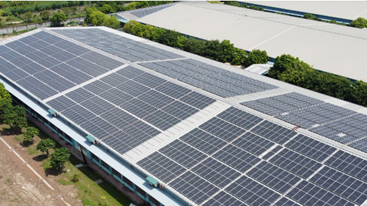Saturday, 04/05/2024 | 09:42 GMT+7
Many of us are guilty of making
token gestures toward saving energy but a lot of us aren't even getting these
efforts right.
Here, we reveal the truth – with
a little help from The Department of Energy and Climate Change (DECC) - about four common energy-saving myths we often get suckered by.
Myth 1. Computer screensavers save energy
No, they
don't. They're just another programme used by your laptop, desktop or
smartphone that consumes energy. Switching off your computer (or the monitor at
least on your desktop) is by far the most effective way to save energy and cut
your bill.
Myth 2. TVs, laptops and phone chargers don't use electricity when plugged in but not in use
Wrong again. They drain electricity even when idle or on
standby mode at a cost to the average household of £86 a year. In fact, seven
out of 10 households leave electrical items on standby, with 38% admitting they
do so all the time, according to research by uSwitch.
If you're a bit lazy when it
comes to unplugging your gadgets, you could invest in remote-controlled
sockets. So-called 'smart' sockets connect with your smartphone so you can turn
off anything plugged in to them in one fell swoop. They're widely available
from retailers including Amazon and Maplin – the Bye Bye Standby Starter Kit
(£11.99) or the Energenie pack of four remote-controlled sockets (£29.99), for
example.

Myth 3. There's nothing you can do to cut the energy your fridge, freezer, washing machine or dishwasher uses
Nope, not
true either. Adjusting the settings by not using the coldest or hottest ones
will save money. As will closing the door of the fridge or freezer as quickly
as you can, which reduces the amount of warm air that gets in that subsequently
needs cooling.
Similarly, using the eco setting
on your washing machine or dishwasher will help by reducing the energy needed
to get the water piping hot.
Myth 4. LED light bulbs will cost you more
False. In
fact, an LED bulb lasts around 50 times longer than a traditional light bulb.
DECC says switching to LEDS could save you 80% on your energy bills. Each one
costs around £9.30 and will last five and a half years (if on constantly),
while the cost of a series of traditional bulbs over that same amount of time
would cost around £135 at today's prices.








.jpg?w=367&h=206&mode=crop) Energy efficiency and conservation usage is an important aspect of the national energy development strategy
05/03/2024
Energy efficiency and conservation usage is an important aspect of the national energy development strategy
05/03/2024
 Challenges and Opportunities to promote energy efficiency market in Vietnam
Challenges and Opportunities to promote energy efficiency market in Vietnam
 The Ministry of Industry and Trade requests government agencies to coordinate in organizing Earth Hour 2024
The Ministry of Industry and Trade requests government agencies to coordinate in organizing Earth Hour 2024
 Consultation on Energy Efficiency Boiler Catalogue and Wood Drying Guideline
Consultation on Energy Efficiency Boiler Catalogue and Wood Drying Guideline
 Son Ha Co., Ltd, applies energy efficiency and conservation measures
Son Ha Co., Ltd, applies energy efficiency and conservation measures
.png?w=367&h=206&mode=crop) Request for expression of interest - C2.1.13: Capacity Building on energy efficiency policies development
Request for expression of interest - C2.1.13: Capacity Building on energy efficiency policies development
 Phuc Kien Co., Ltd., is effectively implementing energy-saving measures
Phuc Kien Co., Ltd., is effectively implementing energy-saving measures
 Request for expression of interest - C2.1.12: Independent monitoring of safeguards implementation
Request for expression of interest - C2.1.12: Independent monitoring of safeguards implementation